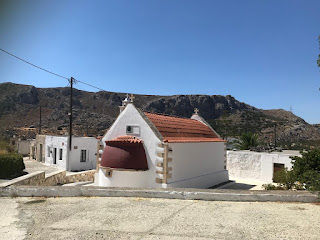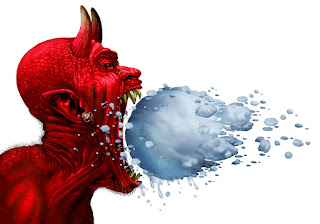Beyond Tears, Beyond Fears
by Colette Hartwich
4th September, 2021 - Berlin
Almost a year ago, at the beginning of the worldwide pandemic, I wrote an article inspired both by a romantic Italian song of the 50s and by an authentic snapshot of two “lovebirds” talking to each other on their phones from their respective rooftops. Just like the song, the article was called “a tear on the face”. Since then we have survived many tragic situations and sustained real deprivations and losses. But, we survived and learned. We have even discovered unexpected silver linings. Since the beginning of lockdowns, we have started making lists of what’s obsolete and why. Is the car obsolete and rather an expensive embarrassment? Or is it an object of prestige like before? Can we think the same of a watch and time in general? What about the pre-covid social life with its gloriously tribal character? We still live in tribes, but these tribes are small. These new tribes, like family or housing centered groups are interest groups for a new updated communal living.
Our “shared cavern” should be safe, practical and congenial. Neighbors need each other as a firewall against practical problems and, often, new types of solitude. The new babies of the year are known to the whole apartment house and new parents can rely upon all of us, veterans, for help and advice. In our “common cavern”, it’s the only way to survive.
Dependent as we have become on home delivery, often from far away sources, we have always been forced to connect closely with our neighborhoods small and independent traders and markets. We got to know nearby farmers and their way of work. Home deliveries have been one of our escape routes, especially for gastronomy. But it implies that we need to accept parcels for our neighbors, warn them in time, and half of the time, those neighbors let us know when to pick up the parcels. It also implies we acquire an ecological awareness of paper and cardboard as waste and that we together organize a safe and not too slow disposal. Paper and cardboard are just as toxic as plastic and when we account more for that type of waste in our consumer patterns, we have to modify our payment and disposal conditions with the firms getting rid of them. That requires consumer education on our side and inventiveness on theirs.
Since, politically and economically, we are faced with global immediate disasters, the seemingly abstract slogan “LEAVE NO ONE BEHIND” is a harsh reality. I’d stress this by the strategy(-ies) of all those we really had left behind and are still leaving: those helpless in Afghanistan and closer to us - the tragedies of collapsing mental health for all ages and all social groups.
Covid-19 is still hard to tackle, depressions that accompany or follow in really tragic contexts are just as hard. How do you pep up someone who’s not only sick but sure to lose his/her/their job and wonders where survival money will come from? How do you cheer up your daughter in New York, locked up in quarantine, alone with Covid-19 and no doctor ready to come help or allow her to enter a hospital? How do you fight the stress of a young mom facing both home office and home schooling at once? Future generations of women will probably pay a high price for the almost automatic reversion into traditional roles brought about by higher male salaries.
Another trend that is here to stay is home office. It does mean rethinking the home environment, essentially designed for convenience and rest, meaning a further role confusion between the worker as employer, parent and neighbour. One concrete example: What to do about daytime drilling? It sometimes drives us to despair, even within legally admissible hours. Especially when you are on a business call inside your home office.
What about the many silver linings of what has been a dramatic situation? First, the meaning and importance of family and tribal-social ties. A tribal tie here is one of shared convictions of any kind.
During the worst quarantine period, exchanging news with the extended family and close friends took all of us a lot of time, especially given the time differences. When there were extreme circumstances, like forest fires, be it in California or Covid-19 pandemic situation in the Ukraine. In Ukraine some survival meant that public transportation no longer existed. Invention and optimism had to be a consistent companion. My son in California had his jeep survival packed for months now, ready at any moment to escape forest fires. In Ukraine, the fire fighters brought some essentials to people in need who had no car or money.
To finish on a positive note, here is a picture of this end of crisis: my granddaughter Catleya, an unexpected fresh beauty and a citizen of the World upon her apparition as a conclusion. I immediately joined “Stop Asian Hate” and enjoyed after 42 years of non-babies, learning about the new ecological, biological and sustainable diapers.
The opinions expressed in her postings are her own.
Copyright©2021 Colette Hartwich




Comments
Post a Comment